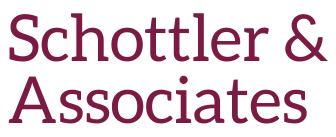Debt Consolidation vs. Bankruptcy
When considering how to handle your overwhelming debts, it is imperative to understand all your options. Common forms of making debt management easier are debt consolidation or various filings for bankruptcy. Depending on your situation as someone handling individual debt or business debt, either method can help you attain financial freedom. The differences between debt consolidation vs. bankruptcy can heavily influence your decision.
What is Debt Consolidation?
Debt consolidation is exactly what it sounds like – combining your multiple debts into one to make your interest rates lower and your life a little easier. Consolidating your debts can save you money by lowering your interest rates, improving your credit score and enabling you to continue to have access to credit.
There are a few ways to go about consolidating your debts.
Methods of Debt Consolidation
- Talk to a team of experienced financial lawyers to help decide whether debt consolidation vs. bankruptcy is right for you.
- Contact your bank, lender, or a credit union to help create a feasible plan for you. Usually, the financial institution will buy your debt and offer you a debt consolidation loan. Depending on your credit score, the interest rate on this loan can be less than or equal to your current interest rates on your individual debts.
- Enroll in a credit forgiveness or credit consolidation program through a non profit agency. The agency may or may not include fees for their services and can provide the financial counseling needed to help you make your decision.
What is Bankruptcy?

The term “bankruptcy” refers to the legal process in which a debtor, either an individual or a business, can declare that they are unable to pay their debts and begin their steps towards financial freedom.
There are different types of bankruptcy filings that are known by their chapters in the Bankruptcy Code.
Types of Bankruptcy
- Chapter 13 Bankruptcy
Another common form of bankruptcy is Chapter 13 bankruptcy. Chapter 13 bankruptcy is also called wage earner’s plan as it is the best option for those with secure, regular income. This form of bankruptcy is significantly different in that it helps debtors avoid foreclosure of their homes. Even if a debtor’s home is under foreclosure, filing under Chapter 13 allows the debtor to cease foreclosure proceedings if they are still able to make mortgage payments on time. Chapter 13 bankruptcy is most like debt consolidation. The debtor pays all debts to the appointed trustee who disburses these funds strategically to creditors.
- Chapter 7 Bankruptcy
The most common form of bankruptcy, also called straight bankruptcy, Chapter 7 bankruptcy allows individuals and certain businesses to dissolve unsecured debts and some secured debts. It includes liquidating assets to pay creditors. Most or all nonexempt assets are liquidated, but some assets can be exempt.
In certain circumstances, commonly nonexempt assets can become exempt. To understand which assets can be exempt in Chicagoland, contact a local and trusted bankruptcy lawyer to facilitate your case.
- Chapter 11 Bankruptcy
Chapter 11 bankruptcy means reorganizing debts and assets. It is most commonly used by larger firms that want to continue operating while devising methods to avoid complete closure. However, individuals who do not qualify for Chapter 7 bankruptcy or Chapter 13 bankruptcy may benefit from this option.
This declaration of bankruptcy enables the debtor to come up with their own reorganization plan, with or without an appointed trustee, to rework their financial commitments and challenges. Such plans can include financial strategies for downsizing business operations, reducing expenses or liquidating assets to repay creditors.
The Small Business Reorganization Act of 2019, which went into effect in early 2020, added Chapter 11 Subchapter 5 to make bankruptcy easier and simpler for small businesses. Furthermore, the recently signed Coronavirus Aid, Relief, and Economic Security (CARES) Act raised the Chapter 11 Subchapter 5 debt limit, making bankruptcy proceedings more feasible for eligible businesses. Bankruptcy lawyers familiar with the most recent changes to bankruptcy law are key to understanding how you, as a business or individual, can make the process smooth for yourself and your creditors.
Debt Consolidation vs. Bankruptcy – Which is a Better Option for You?
Debt consolidation vs. bankruptcy can be a great option if you have landed in debt because of unforeseen circumstances. When faced with situations like high medical bills and emergency loans, it may be simpler and easier to consolidate your debts and pay them off consistently than to file for bankruptcy.
If you are unable to commit to changes in spending habits for any reason, bankruptcy may have an advantage. Although declaring bankruptcy affects your credit score, it can be a way to keep assets that are important to you or keep your business operating.
With a plethora of information on debt management, it is increasingly important to understand which method is best for your unique financial situation. As you do your own research, consult with expert Chicagoland bankruptcy lawyers to make your decision between debt consolidation vs. bankruptcy. Financial lawyers specializing in bankruptcy cases that have your best interest in mind are essential for creating sustainable financial freedom for yourself, your business, and others that depend on you.

